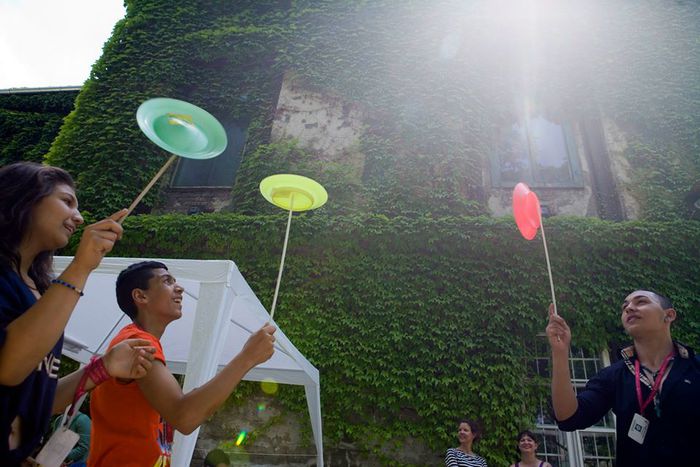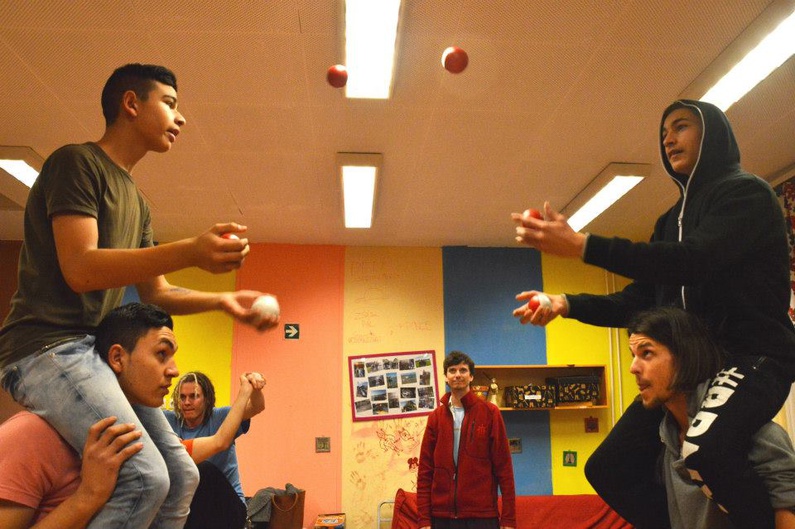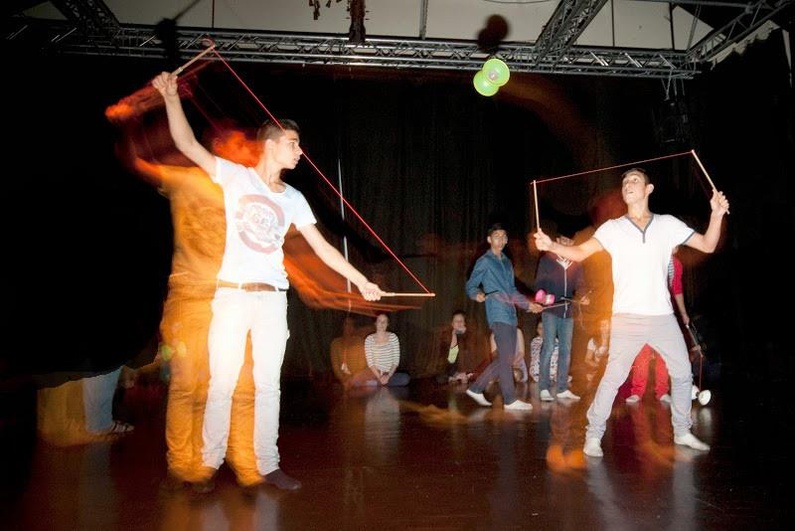
Social Circus: Don't forget to play
Published on
Admit it, you've always wanted to learn to juggle. Sure, it looks cool, but it's way more than just an awesome way to get everyone's attention. On top of these benefits, it's been proven to help disadvantage young people, including those with concentration problems or dyslexia.
Contemporary circus meets Educircation
Contemporary circus was born in the 70s when performers left the stage to try new methods of entertainment. This is the context within which the idea of using social circus as a method of informal education and peer-based learning arose. Though not yet widely diffused, such methods are becoming more and more appreciated by researchers of learning difficulties and the integration of disadvantaged young people worldwide.
The Hungarian Juggling Association uses social circus methods. They have two groups meeting regularly, one in the Heim Pál Hospital and the other in Pesterzsébet. Having been awarded a grant and assistance from the Norwegian NGO Fund, they are organising social circus workshops for people working with disadvantaged youth – such as teachers, social workers and anyone else interested in the topic.
 As I work in a school that helps young people with special educational needs, I had the chance to participate in one of these workshops and was amazed by the whole technique. I realised that social circus had a more powerful effect than I'd thought.
As I work in a school that helps young people with special educational needs, I had the chance to participate in one of these workshops and was amazed by the whole technique. I realised that social circus had a more powerful effect than I'd thought.
It’s not only appreciated by the Juggling Association but also by the Waldorf teaching method, which states that every child should learn to juggle by the age of 12 to aid their studying process and help them concentrate in school.
In addition, a lot of performers have realised the importance of juggling as a kind of therapy. Contemporary circus performances at Trafó are often given in tandem with a juggling workshop for disadvantaged young people from Pesterzsébet.
It’s not only Hungary where this is becoming more popular; it's a worldwide phenomenon. It was at Cirque de Soleil where the process was developed. The Educircation project also organises seminars, workshops and study visits for social circus trainers to learn from each other’s methods and help the development of the technique through shared experience.
Juggling and it’s therapeutic effects
A social circus workshop is not just about juggling, it’s a well-structured process through which participants get to know themselves and each other better. They learn patience and confidence while trying different skills: juggling, devil sticks, flower sticks, diabolos, spinning plates, rolabolas... the list goes on.
On a physical level, these kind of activities develop motor skills, sensorimotor skills and coordination; as well as connecting the two sides of the brain and improving peripheral vision. On an emotional level, they help students relax, give a sense of achievement and help develop control over anger and other emotions. It has positive psycological effects, helps to motivate participants, develops community spirit and – the most important and surprising fact – helps develop basic competences such as reading and writing.
The process is simple. After a warm-up and a few ice-breaking game, students try to learn different types of circus skills. It’s important that there's not a traditional student-teacher situation; after a while students begin to teach each other. It's not too hard to pick up new tricks, so peer support is key to social circus.
At the end of a workshop, there's a performance in which everyone has a role. The main point of this is not professionalism but to emphasise the bravery of new performers and those who help them as, for example, a stylist or photographer. In this way, it helps develope social skills, too. It's not a competition but a team sport; students have to communicate to put the final show together. This takes trust, patience, persistance and a lot of concentration.
 I’ve been to one of the performances in Pesterzsébet and was amazed both by their juggling and their confidence on stage. Knowing the difficulties these young people face in life, it’s really a miracle they’ve found an activity that gives them hope while also developing mental, physical and social skills – just by having fun.
I’ve been to one of the performances in Pesterzsébet and was amazed both by their juggling and their confidence on stage. Knowing the difficulties these young people face in life, it’s really a miracle they’ve found an activity that gives them hope while also developing mental, physical and social skills – just by having fun.
---



